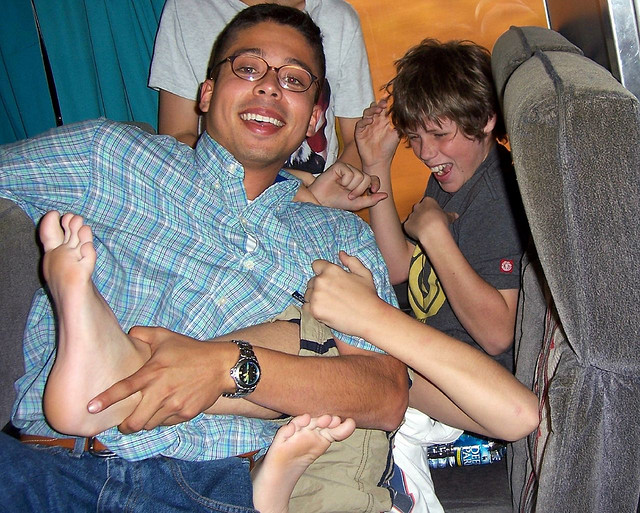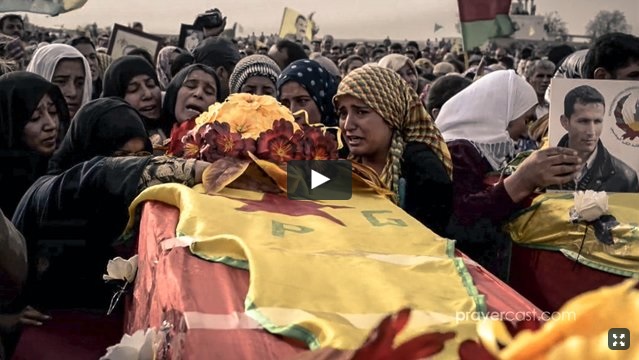
In this issue: Middle School Missions

Safe, Significant, and Cheap: Middle School Missions Experiences that Work
By Shane Bennett
If you’re at all like me (oh, let’s hope not), you just now decided there’s not enough time to pull together a short-term mission trip for your middle schoolers (pre-teens) on spring break, which for us starts a week from Friday. But maybe, just maybe, there’s time to do something with those kids this summer, something besides the entirely valid idea of staying home and working on a project in your own neighborhood. Maybe there’s an Indian reservation or Mexican border-town orphanage with one last opening for another group of American kids?
Three Starting Factors
What would you do with a middle-school mission team? What would you look for in evaluating the opportunities? Here’s what made my short list.
1. Safety
I want a junior high short term to be safe and predictable, like a pinewood derby, with extensive, detailed, skillful, smart preparation. Everyone meets at the starting line, then the gate drops and the thing proceeds directly, inevitably to its preordained conclusion. More often, though, these endeavors feel more like trying to pick up a bag of marbles spilled on a hard wood floor in the dark. During an earthquake.
Some of those marbles are the magic of the experience. So we’d be unwise to eliminate them all. And you can only do that (maybe) by staying home. But the chief concern in the mind of almost all parents is, “What are the odds my kid will return from this experience whole and healthy?” So we’d be smart to prioritize safety.
One way to make a trip safer is to not cross any borders. Any border really, but I’m thinking about international ones. Staying away from borders, we can avoid passport issues, lines at the crossing, or pseudo-legal notes saying the young buck with the soul patch does indeed have permission to take your daughter out of the country!
We can also “up” the safety factor by linking with similar-culture churches in cities whose predominant language is the same as our own and with whose legal system we have a vague familiarity.
2. Significance
While safety matters, we can’t let it be the only factor. Middle-school mission experiences need to be significant as well. A visit to the Rainforest Cafe is safe, but really, plastic alligators aren’t going to change lives! Some short terms are more significant than others. How can we prioritize time among people who are little exposed to the gospel, not just little blessed by Western materialism? And how can we invest limited hours in ways that have huge payoff, both in the lives of our kids and in those we hope to serve and serve with?
The more we can partner with wise, long-term ministries, the higher the likelihood of our doing significant work. I love what Refuge is doing in Louisville. Find their doppelganger in the city you want to visit.
3. Savings
As with safe, the cheapest trip is from the kitchen to the couch. If you actually do launch out, it’s going to cost some coin. If we drive to a domestic location, sleep on the floor of a church, cook our own food, and don’t buy lift tickets or Disney park passes, we can significantly ratchet up the ratio of bang to buck.
What to Do
Let’s say you’re with me so far (God bless you!). What should you do with your kids on a trip like this? Thanks for asking. Here you go:
1. Connect with others.
A smart friend of mine, a Young Life leader who, in her own words, “works with wealthy white kids” says, “Get them in a position of being ‘the other,’ genuinely distrusted by some other group for the first time. Get them out of their perfect, white, wealthy bubble long enough to really see something else. This is healthy.”
You probably don’t want to stop there, though. Part of what makes this work is the hope of developing an authentic connection with others. My favorite starter activity for this is a cultural scavenger hunt. Send kids out in groups of three or four with a list of questions to answer and artifacts to find. Arrange the game in such a way that winning depends on conversations with local people.
For some of your kids this will be the first time they’ve ever spoken to someone whose first language is not the same as theirs. Or it may be the first time they’ve been in a position to receive kindness from a Muslim or a Hindu. This can have powerful, preconception-crushing impact. Prearrange a time for your group to visit a mosque, for example, preferably when you can observe a regular prayer time. Be sure to clue in to the dress code and stick around after for questions and answers (going both ways).
2. Host a party.
Fill a neighborhood with good music and the smoke of a dozen grills. Play games and give prizes. Share some of what God has given you. While the kids are playing, the older people can chat. Cool stuff can emerge.
3. Serve alongside local friends.
This takes some planning, but arrange to work alongside some local folks in a project that benefits their community. Abrahamic Alliance in San Jose excels at this.
4. Pray.
Of course you’ll pray for your trip and your time, but what would it look like to make praying for people a key part of what you do? My experience is this: (a) Many people, lots of Muslims for example, tend to be really OK with Christians praying for them. More than you might expect. And (b) Kids sometimes are way better pray-ers than grownups. I don’t know your kids, but I’m intrigued by the idea of unleashing the Holy Spirit through the lives of some wild-eyed middle schoolers.
5. Connect with Jesus.
While you’re connecting with new friends, don’t forget to connect with Jesus. I like to see trips like this include team Bible study, worship, and prayer. Keep re-orienting the focus: We are here because of Jesus, because he is King, because he has in mind to make all things new, including us, these people, and this neighborhood.
I also like to see kids praying and worshiping with Christians local to the city they’re visiting. There’s so much to be learned and gained in that.
Connect to Jesus and connect the experience to the rest of your kids’ lives by tithing the trip to debriefing. If the trip is five days long, conserve an entire half day to debrief. You might want to space this out with 30 minutes each day and a three hours on the last day. Basically you ask, “What is Jesus saying to us and what does it mean?”
Fail to debrief and you’ll forfeit 30 percent of the impact of your trip.
6. Serve and burn.
There’s a reason middle-school mission trips usually revolve around manual labor. Kids are like puppies: Boundless energy and no maturity! All the wishing (and Ritalin) in the world will not change this. Might as well work with it.
I like to put kids to work serving people who serve refugees. Visit a refugee ministry to pull weeds, haul trash, sort clothes, clean basements, and yes, paint whatever lacks the will to flee their sloppy brushes! This, and lots of walking, will help burn off some of that excess energy. I’ve also done this with a day care catering to the predominant refugee culture. It was great fun!
A trip like this can be significant both in the lives of your kids and for those you serve or serve with. It won’t be totally cheap nor completely safe, so do it under the care of your loving God. And may he give us grace to be a part of raising up the next generation of laborers for his plentiful harvest.
» Comment on this article on our website or Facebook, and please forward or share it freely! And let me know if you want my help to launch a trip like what’s describes here.
Image: Mighty mighty bigmac (Flikr / Creative Commons)


